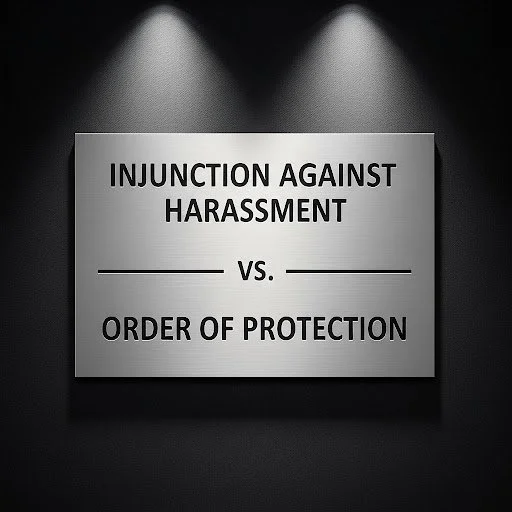Injunction Against Harassment vs. Order of Protection: What’s the Difference in Arizona?
Injunction Against Harassment vs Order of Protection
When you're facing threats, intimidation, or ongoing unwanted contact, knowing your legal options is critical. In Arizona, two of the most common protective orders are the Injunction Against Harassment (IAH) and the Order of Protection (OOP). While they both serve to prevent contact and protect individuals from harm, they are designed for different situations—and understanding the distinction can help you get the right legal protection quickly.
What Is an Injunction Against Harassment?
An Injunction Against Harassment is a civil court order that protects a person from harassing conduct by someone outside a close or domestic relationship.
Common Examples:
A coworker repeatedly sends threatening emails
A neighbor follows you or shows up at your home uninvited
A former friend won’t stop texting or calling despite being asked to stop
To qualify, Arizona law typically requires:
At least two or more incidents of harassment,
That cause alarm, annoyance, or emotional distress, and
The acts must serve no legitimate purpose.
Once issued, the injunction can prohibit the harasser from contacting or coming near the victim. Violating the injunction is a criminal offense.
What Is an Order of Protection?
An Order of Protection is also a court order—but it is used specifically in cases of domestic violence or abuse involving someone with whom the victim has a family or intimate relationship.
Common Examples:
A spouse, ex, or roommate threatens you or becomes violent
A parent or sibling engages in physical abuse
A former partner begins stalking you
To qualify, the relationship must be:
Family members (e.g., parent, child, sibling)
Current or former romantic partners
People who live together or share children
An OOP can order the abuser to stay away, stop contact, and may also:
Restrict firearm possession
Include children in the protective order
Grant temporary custody or residence rights
Which One Should You File?
File an Injunction Against Harassment if you're being harassed by someone who is not a family member or romantic partner, and the harassment has occurred more than once.
File an Order of Protection if the abuse is coming from someone with whom you have a domestic or intimate relationship, and it includes violence, threats, or stalking.
Filing Tips in Arizona
You can file either petition at your local Municipal, Justice, or Superior Court.
If the order is granted ex parte, the respondent will not be present but must be served before the order takes effect.
Respondents can request a hearing to challenge the order.
Orders typically last 1 year from the date of service.
Know Your Rights
Protective orders are powerful legal tools—but choosing the right one is essential. At Tyler Allen Law Firm, we help individuals understand their legal rights and navigate the court system with confidence.
If you’re unsure which type of order you need or are facing harassment or abuse, we’re here to help.

